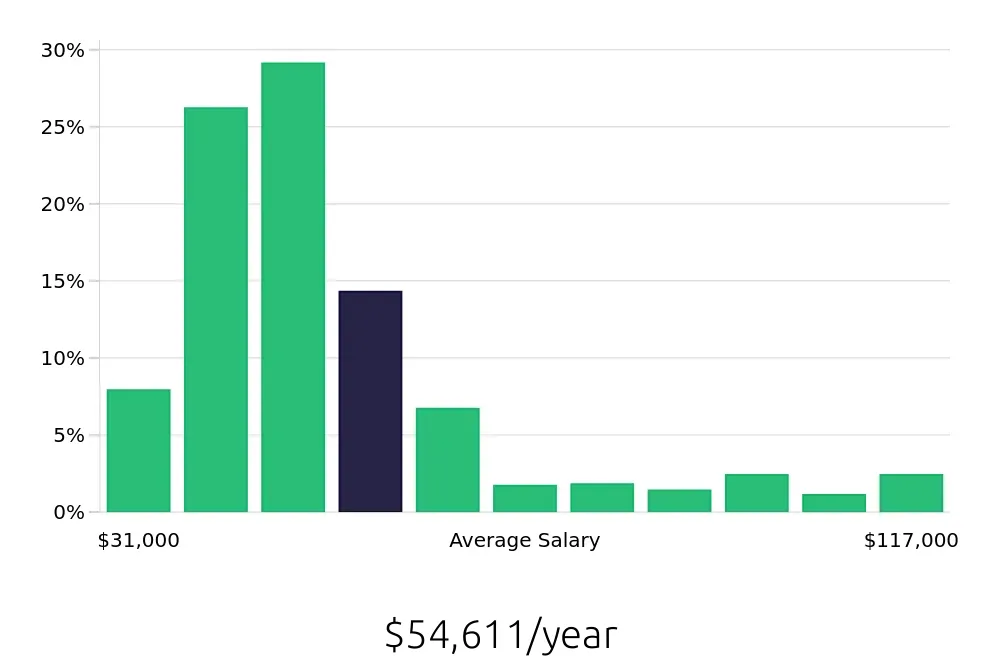Position
Overview
A travel agent helps people plan and book their trips. They know a lot about different places to visit, how to get there, and where to stay. This includes finding the best flights, hotels, and activities. They make sure the trip runs smoothly and answer any questions travelers might have. A travel agent's goal is to make sure people have a fun and stress-free vacation.
The travel agent starts by talking to the traveler. They ask about what the traveler wants to do and where they want to go. They use this information to suggest the best options. They book the flights, hotels, and activities that fit the traveler's needs. They also handle any changes or problems that might come up. Travel agents work hard to make sure the trip is just right for each person.
Becoming a travel agent offers a unique opportunity to help others explore the world. Follow these steps to start a rewarding career in this exciting industry. This career path combines creativity, organization, and customer service skills.
The journey to becoming a travel agent involves several important steps. These steps provide a clear path to achieving your career goals. Here are the key steps:
Travel agents help people plan their trips. This includes booking flights, hotels, and rental cars. To work in this field, education and training play key roles. Many find this career path rewarding and exciting.
To start, some travel agents complete a certificate program. These programs often last from a few weeks to a few months. They cover important topics like booking travel and customer service. Completing such a program can prepare someone to work in the travel industry right away. After gaining some experience, individuals can further their education. Advanced training might focus on specialized areas, such as luxury travel or group travel planning. This can take an additional few months to a year. A mix of formal education and on-the-job training helps agents become skilled and confident.
A Travel Agent is responsible for providing travel-related services to clients, including booking flights, hotels, tours, and other travel arrangements. The ideal candidate should have excellent communication skills, strong customer service skills, and be knowledgeable about various travel destinations and options.
Responsibilities:
Qualifications
Travel agents play a key role in the tourism industry. They help people plan trips, book flights, and make hotel reservations. This job can be exciting and rewarding. It offers the chance to work with different cultures and places. Travel agents also enjoy the flexibility of their schedules. They often can set their own hours. This means they can plan trips around their personal lives.
However, this career path also has its challenges. Travel agents need to keep up with the latest travel trends and regulations. They also often work under pressure to find the best deals for their clients. This can be stressful. In addition, the job may not offer the same level of job security as some other careers. Travel agent positions can be affected by economic downturns. This means there may be fewer opportunities in tough economic times.
Here are some pros and cons to consider:
The job outlook for travel agents remains steady as the travel industry continues to recover and grow. According to the Bureau of Labor Statistics (BLS), there are about 8,600 job positions available each year. This steady outlook means many opportunities for job seekers each year. The BLS also projects a 3.5% change in job openings from 2022 to 2032, indicating a positive trend in the demand for travel agents. This growth suggests that travel agents will remain an essential part of the travel industry in the coming years.
Travel agents play a key role in helping clients plan and book their trips. With the average national annual compensation for travel agents at $50,040, as per the BLS, this career offers a stable income. The average national hourly compensation stands at $24.06, reflecting the value placed on the skills and services travel agents provide. These figures highlight the potential for a rewarding career in travel and tourism. For job seekers, this means a chance to enter a field with both stability and growth potential.
Job seekers interested in becoming travel agents will find a market that values their skills. The combination of a steady job outlook and a decent salary makes this career path attractive. Travel agents can expect a balanced work environment where they can use their organizational skills and creativity to help people plan memorable trips. With the travel industry on the rise, travel agents have a promising future ahead.
